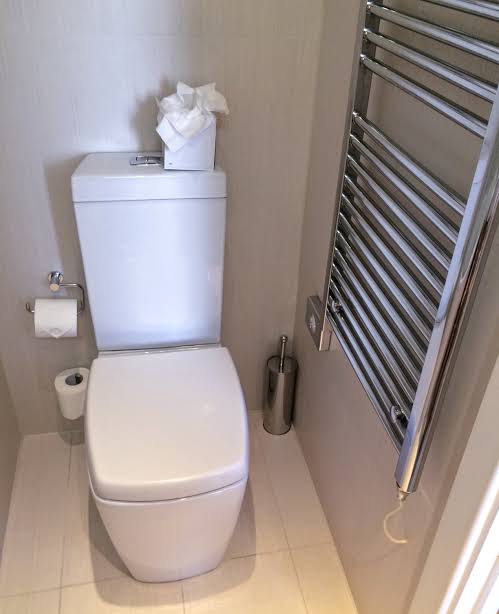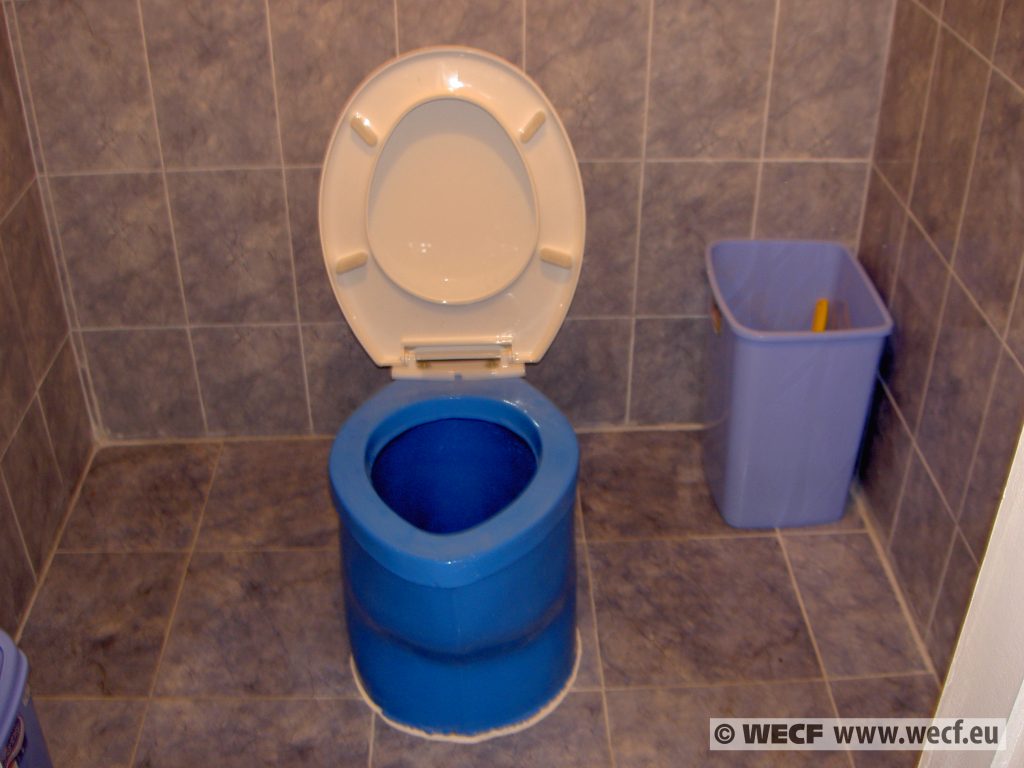An enquiry into the meaning of toilet infection in Nigeria.
Toilet disease is not a medical word or a medical diagnosis. It means different thing to different women based on the symptoms they have.
Toilet infection are generally uncomfortable for both women and men but commoner in women.
Vaginal discharge is a not classical symptom of toilet infection. It may be as a result of yeast infection or any sexually transmitted infections.
Toilet disease in actual sense and medically means a urinary tract infection.
Common symptoms include burning sensation or pain during urination, itching, smelly urine, and general discomfort in the private area.
The local name ‘toilet infection’ came as a result of many woman associating the above symptoms with their use of public toilets, bathrooms, and sharing of public towels (especially in swimming pools).
Toilet infection has been wrongly associated with sexually transmitted disease. They are NOT the same.
Toilet infection is a common reason for hospital visits in Nigeria especially among women.
Contrary to widespread beliefs among Nigerians, toilet disease are not serious and can be easily treated with antibiotics.
Now that we now know that toilet infection is medically a urinary tract infection, let me shed more light on the topic.
what is Urinary Tract infection (UTI)?
Known in Nigeria as toilet infection, UTI is an infection of any part of your urinary system-your kidneys, ureters, bladder, and urethra. Most infections involve the lower urinary- bladder and urethra. It is a painful, annoying and discomforting disease.
Women are at greater risk of developing a urinary tract infection than men. Women with UTI requires urgent medical attention because it can spread to your kidneys leading to kidney failure especially when they are pregnant.
what causes UTI?
It is caused by an organism called E.coli, a bacteria found in the digestive tract of humans but finds its way into the urinary tracts. Women pick up this organism when they use dirty public toilets or clean their anus from back to front. E.coli enters through the urethra and begin to multiply in the bladder. The defenses system designed to keep out the microbes fails and the bacteria take hold and grow into a full blown infection.

A public toilet has been implicated as a cause of toilet infection in Nigeria Credit: Wikipedia
how do you know you have in toilet infection? signs and symptoms of UTI
You may an a urinary tract infection and not know. But the common signs and symptoms include:
- A burning sensation when urinating
- A strong persistent urge to urinate
- Passing frequent, small amount of urine
- Urine that appear cloudy
- Strong smelling urine
- Urine that appears red, bright red or coke coloured- a sign of blood in urine
- Lower abdominal pain
- Waist pains
- Vomiting
- Fever and chills- a sign that the infection has spread to the kidneys.
Urinary tract infections are common in women, and many women experience more than one infection in their life time. The risk factors specific to women for UTIs include:
Who get a toilet infection? the risk factors
- Female Anatomy: Women generally have shorter urethra than men. The length of the female urethra is 4cm while that of the male urethra is about 18 – 20cm. This shortens the distance that bacteria must travel to reach the bladder in order to cause an infection in women.
- Sexual Activity: Irritation or injury to the vagina or urethra caused by sexual intercourse gives bacteria a chance to invade. Sexually active women tend to have more UTIs than women who are not sexually active. A new sexual partner also increases your risk.
- Use of public toilets: women who use dirty public toilets are more prone to toilet infection compared to women do not use. That is where toilet infection got its name from.
- Pregnancy: because the uterus sits directly on the bladder during pregnancy and can block the drainage of urine from the bladder, UTIs are more common in pregnant women. Hormonal changes and repositioning of the urinary tract during pregnancy may make it easier for bacteria to invade and damage the kidneys.
READ ALSO: Drugs for treating candidiasis/yeast infection in Nigeria
- Birth control types: women who use diaphragms as contracepives may be at higher risk of UTI as well as women who use spermicides.
- Menopause: declining level of estrogen causes changes in the urinary tracts that makes menopausal women prne to infection.
Toilet infection and pregnancy
UTIs may be harmful to unborn babies. If you develop a UTI while pregnant, be sure to take the medication exactly as prescribed by your doctor. Pregnant women who fail to properly treat their toilet infection incur a high risk of high blood pressure, miscarriage and premature labour.
What is the treatment? Drugs for toilet infection in Nigeria
Toilet infections are treated with medications that kill the bacteria causing the infection. It is important that these drugs are prescribed by your doctor. The drugs most often used to treat toilet infection in Nigeria are tablets typically taken for 3 days. More complicated infections are treated for about 7-10 days or more of antibiotics depending on the bacteria causing the infection, the drug used, and your medical history.
The most frequently prescribed drugs for treating toilet infection in Nigeria include:
- Ciprofloxacin (Cipro)
- Levofloxacin (levaquin, tavanic)
- Nitrofuratoin (Macrobid, Furadatoin)
- Norfloxacin (Noroxin)
- Fosomycin (Monurol)
- Trimethoprim/sulfamethoxazole (Bactrim, Septra)
- Azithromycin
- Tetracycline
- Doxycycline
- Clindamycin
- Cefixime
- Cefuroxine
- Rocephin injection
Please note that Fluoroquinolones, which include ciprofloxacin, ofloxacin, gatifloxacin, levofloxacin, and norfloxacin have been found to cause birth deformities in babies when taken during pregnancy. So also is nitrofuratoin.
UTI caused by chlamydia may be treated with the antibiotics azithromycin, tetracycline, or doxycycline.
Although your symptoms may be relieved in a day or two after starting the the medication, ensure you complete the dosage to avoid antibiotics resistance and a recurrence.
Please note that this article is not a substitute to seeing a doctor. It is just for your information.
Sources























Thanks very much for this wonderful information.
Welcome